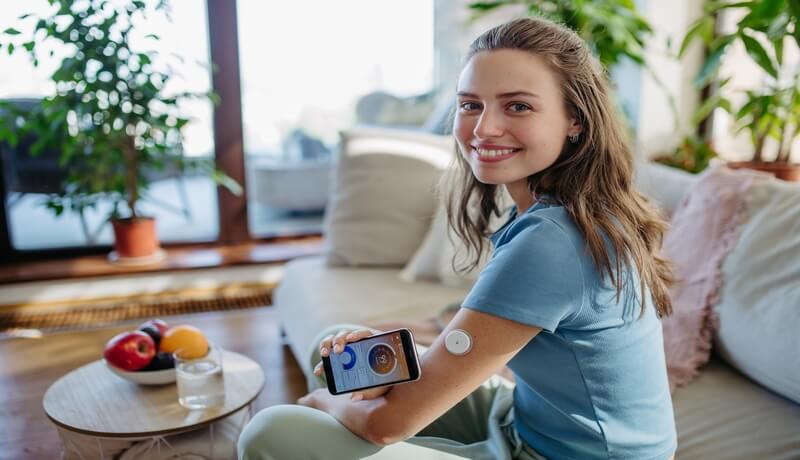Hypoglycemia: Low Blood Sugar
Understanding Hypoglycemia
Hypoglycemia, also known as low blood sugar, occurs when the level of glucose in your blood drops below normal. Glucose, the body’s primary energy source, is essential for proper brain and muscle function. While hypoglycemia is most commonly associated with diabetes treatments, where blood sugar levels can drop too low due to medications like insulin or oral hypoglycemics, there are other causes as well. These include the use of certain non-diabetes medications, serious illnesses, and rare conditions like insulin-producing tumors in the pancreas. Additionally, certain types of weight loss surgeries may increase the risk of hypoglycemia.
Symptoms of Hypoglycemia
Hypoglycemia symptoms can vary widely depending on the severity and speed of the blood sugar drop. Early signs of hypoglycemia may include:
- Hunger: An intense feeling of hunger is often the first symptom.
- Sweating: A sudden onset of cold sweats, even when you’re not physically active.
- Trembling or Shakiness: Your body might shake or tremble, especially in your hands.
- Fatigue: A feeling of extreme tiredness or weakness that is not explained by exertion.
If left untreated, hypoglycemia can escalate to more severe symptoms, including confusion, blurred vision, difficulty concentrating, seizures, and in extreme cases, unconsciousness. These symptoms can resemble other medical conditions, making it crucial to recognize the signs early and respond promptly.
The Body’s Normal Blood Sugar Regulation
In a healthy individual, the body regulates blood sugar levels within a narrow range, typically between 70 and 110 mg/dL. When blood sugar levels drop, the brain initiates several hormonal responses to raise glucose levels. These include the release of glucagon from the pancreas, adrenaline from the adrenal glands, and growth hormone from the pituitary gland. These hormones work together to increase glucose production in the liver and release stored glucose into the bloodstream.
However, in people with diabetes or those with certain medical conditions, these regulatory mechanisms may not function properly. This can lead to an inability to restore blood sugar levels quickly, increasing the risk of hypoglycemia and potential brain dysfunction.
Causes of Hypoglycemia
Medications and Diabetes
The most common cause of hypoglycemia is the use of medications in people with diabetes. Insulin and other oral diabetes medications can sometimes lower blood sugar too much, especially when the dosage does not match the individual’s food intake or physical activity levels. For instance, skipping meals, engaging in strenuous physical activity, or taking too much insulin can cause a sudden drop in blood sugar levels. Careful monitoring and adjustment of medication and diet are essential to prevent this condition in diabetes management.
Other Health Conditions
Although hypoglycemia is most often linked to diabetes, other medical conditions can also lead to low blood sugar. These include:
- Alcohol Consumption: Drinking alcohol on an empty stomach can prevent the liver from releasing glucose into the blood, causing hypoglycemia.
- Liver Diseases: Conditions like hepatitis or cirrhosis can impair the liver’s ability to store and release glucose.
- Hormonal Deficiencies: Rare conditions that affect hormone production, such as adrenal insufficiency, can cause hypoglycemia.
- Insulin-producing Tumors: Tumors in the pancreas, called insulinomas, produce excess insulin, leading to low blood sugar levels.
- Enzyme Deficiencies: Genetic conditions affecting enzymes involved in glucose production can result in chronic hypoglycemia.
Symptoms and Progression of Hypoglycemia
The symptoms of hypoglycemia can resemble those of an anxiety attack, starting with hunger, sweating, and trembling. As blood sugar levels continue to drop, the symptoms can escalate to more severe stages. Individuals may experience confusion, dizziness, blurred vision, or difficulty focusing. In extreme cases, seizures or unconsciousness may occur. If not treated quickly, prolonged hypoglycemia can lead to brain damage and even death.
Diagnosis and Treatment
The diagnosis of hypoglycemia is confirmed by measuring blood glucose levels during a symptomatic episode. When blood sugar is measured at levels below 70 mg/dL, immediate treatment is necessary to raise glucose levels. The most effective way to treat hypoglycemia is to consume fast-acting carbohydrates, such as glucose tablets, juice, or candy. In cases of severe hypoglycemia where the individual cannot eat or drink, an injection of glucagon or intravenous glucose may be required.
For individuals who experience recurrent hypoglycemia, it’s essential to carry glucose tablets or an emergency glucagon kit at all times. Long-term management may involve adjusting diabetes medications, making dietary changes, or in rare cases, undergoing surgery to remove insulin-producing tumors. It’s also crucial to work with healthcare providers to ensure proper treatment and monitoring of blood sugar levels.
Prevention and Management of Hypoglycemia
Preventing hypoglycemia involves making lifestyle adjustments, especially for individuals with diabetes. Here are some key preventive strategies:
- Eat Frequent Small Meals: Eating regular, balanced meals throughout the day can help prevent blood sugar drops.
- Limit Simple Carbohydrates: Consuming complex carbohydrates instead of simple sugars helps maintain stable blood glucose levels.
- Monitor Blood Sugar: Regularly checking blood sugar levels can help prevent episodes of hypoglycemia, especially after physical activity or meals.
- Medical Identification: Individuals prone to hypoglycemia should wear medical identification or carry a card that informs others of their condition in case of an emergency.
By taking these preventive measures, individuals can effectively manage hypoglycemia and ensure that they receive quick treatment when necessary. Regular follow-ups with healthcare providers are essential for adjusting medications and developing a personalized prevention plan.
Learn more about hypoglycemia by clicking here.
Request your Appointment by clicking on the picture below.

